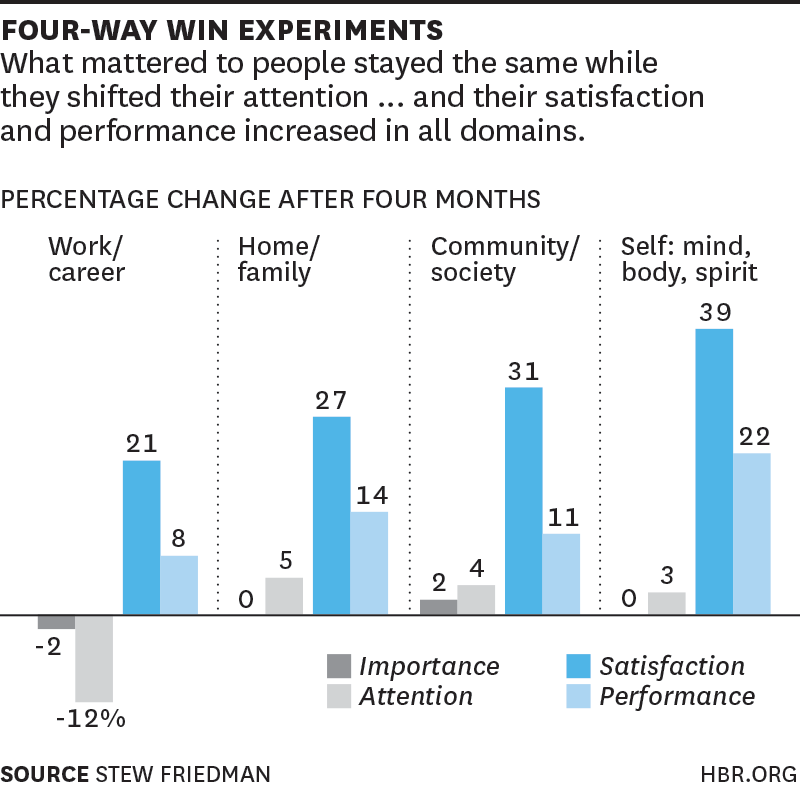Work Less, Accomplish More
“It might seem counterintuitive that you will perform better at work if you spend more time with your kids, leave work early to volunteer at a local nonprofit, or take an hour out of your workday to go to the gym. But that’s just what happens.”
– Stewart Friedman, Wharton Professor and former head of Ford’s Leadership Center
__________
Have you snuck out of the office to exercise at lunch or for a quick lunch date with your wife and returned to work with almost startling clarity?
In contrast, have you ever beaten your head against a problem at work for hours on end only to find the solution slipping farther and farther away?
While many of us have felt more effective at work after we take a break from it, few of us have the gumption to make working less a habit when our responsibilities and to do lists continue to grow at the office.
Turns out that by working more, we are missing an incredible opportunity to work less, but accomplish more.

The data above was captured by Stew Friedman. He is a Wharton Professor and the former head of Ford Motor’s Leadership Development Center. After his work with Ford, it became hailed as a “global benchmark” in leadership development. Friedman is noted as one of the world’s top 50 business thinkers. In other words, this guy pretty much knows what he is talking about.
And he’s not just spouting off about this balance thing, his conclusions are based on hard research. The data above was gathered by following 300 business professionals who were asked to undertake “four way win” experiments. A four way win experiment is started by participants carefully considering the people who matter most to them in life and the expectations they have of one another. They are then asked to make small changes in their lives and to measure the effects in the four critical areas – which are Work, Home, Community and Self.
The intent of these experiments is for the individuals to better align their actions with their values in a way this is consciously designed to benefit themselves, their work, their home life and their community.
What Friedman’s research has found is that by re-focusing more of your attention on areas that matter most to you (even when those areas are not work), you work will improve.
Note the results in the chart above. These individuals collectively reduced the attention they paid to work by 12%, but reported a 21% increase in satisfaction at work. And this is not people just “feeling better” about their work.
They actually got better at their work! On average, their work performance improved by 8%! And that increase in performance was measured by key stakeholders in their work. In other words, the consumers of their work reported that their effectiveness improved by 8% when the participants had purposely paid 12% less attention to work. That is pretty amazing!
The work gains occurred while even more dramatic satisfaction increases were occuring in the three other critical areas of home, community and self!
How? Friedman cites these reasons:
Clearer focus on results that really matter to the people around you.
- Less wasted effort on activities that aren’t that important.
- Reduced psychological interference across domains as a result of being less distracted, because you’re taking care of critical needs in those other parts.
- A virtuous cycle of benefits from one part of your life spilling over to other parts; for example, greater confidence, less crankiness, and a stronger sense of control.
The problem is that most people will never undertake this type of experiment because most people are too scared to try!
That is a shame. Next week, we’ll dig into why people are missing out on these great potential benefits and how they can make the leap.
What about you? Are you willing to give this type of experiment a try?
Thank you for being a part of our values driven community!
Image courtesy of Harvard Business Review.

 Share
Share  Tweet
Tweet  Email
Email  Print
Print